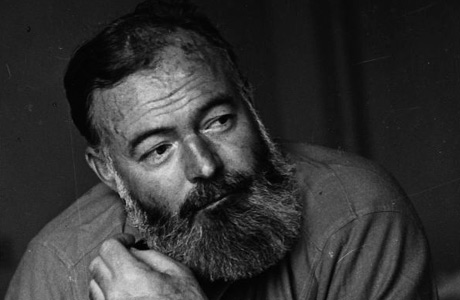
This month our cover images feature the great American writer Ernest Hemingway who lived much of his life as an expatriate in Cuba and in Europe. Hemingway had a unique style of writing with uncluttered and straight forward prose. He was born in 1899 in Oak Park, Illinois and started his career as a writer in a newspaper office in Kansas City at the age of seventeen. He was a man of action and joined the First World War as a volunteer ambulance unit in the Italian army.
He served in the front-line near Trieste in Italy and was decorated by the Italian Government while he spent considerable time in hospitals recovering from serious wounds. Once returning to the United States, he worked as a newspaper reporter and was soon sent back to Europe.

During the twenties, in Paris, Hemingway became part of a group of great expatriate Americans and he worked on what he described as his first important work, The Sun Also Rises (1926). This was followed up by his equally successful novel was A Farewell to Arms (1929), which portrays the life of an American ambulance officer during WWI and his disillusionment with the war. Hemingway used his experiences as a reporter during the civil war in Spain as the background for his most ambitious novel, For Whom the Bell Tolls (1940). Among his later works, the most outstanding is the short novel, The Old Man and the Sea (1952), the story of an old fisherman's journey, his long and lonely struggle with a fish and the sea, and his victory in defeat. As an expatriate in France he associated with other great writers including F. Scott Fitzgerald, T.S Eliot and James Joyce.

Finca Vigia, Ernest Hemingway's old house in Cuba.
Hemingway was fascinated with Spanish culture and the brutality of the bullfighting. He himself was a hunter in Africa and a deep sea fisherman in Cuba. He wrote a lot about these topics and his writing portrays men with machismo qualities. His straightforward prose, his spare dialogue, and his predilection for understatement are particularly effective in his short stories, some of which are collected in Men Without Women (1927), The Fifth Column and the First Forty-Nine Stories (1938).
After the Castro revolution in Cuba, Hemingway who was suffering from illness, left his residence outside Havana and returned to the US where he died in 1961.
No comments:
Post a Comment